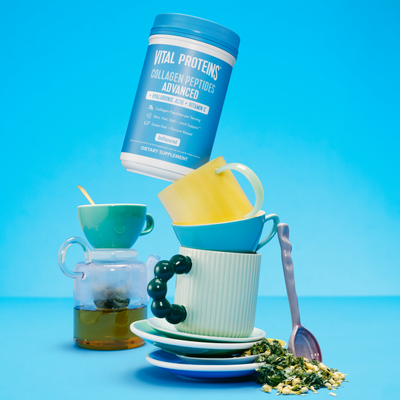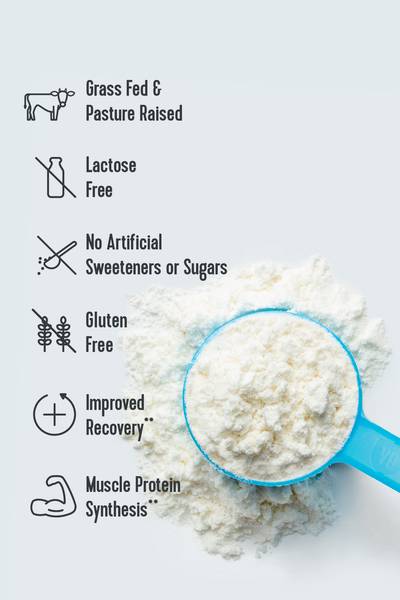May is Mental Health Awareness Month. Established in 1949, the goal of the month is to raise awareness of those living with mental illness and increase awareness of the impact of mental health and wellness on a person’s overall health. As of 2020, nearly one in five adults live with a mental illness, according to the National Institute of Mental Health.
Lively caught up withsteeplechaser and Vital Athlete Colleen Quigley, who has been open about her own mental health journey.
“Pretending that everything was fine when it was not made me feel so inauthentic that I believe it made it even harder for my body to heal,” says Quigley.
Here, she opens up about her mental health journey and how embracing bad days and working with amental coach has helped her better deal with her mindset around training and racing.

Lively: What does mental health mean to you?
Colleen Quigley: Mental health is so tied up with physical health that sometimes it’s hard to even tell the difference. When I’m feeling sad or just unmotivated I can feel it in my body—I’m sluggish and heavy. When I’m feeling anxious and stressed my body feels tight and stiff. Oftentimes I’m tempted to address the physical component first, rolling out my tight muscles, but really what I need is a 10-minute meditation or a few rounds of calming breaths.
L: Do you have any daily habits that help your mental health?
CQ: I think the best thing I do for my mental and physical health is actually the morning walk with my dog. I do it almost first thing in the morning and I try to leave my phone at home or on silent in my pocket and be really present with Pie while we walk for about 20 to 30 minutes. It’s a great way to start the day and really sets the tone. Sometimes my fiancé walks her in the afternoon, but if I’m stressed later in the day a quick second walk is a great way to bring me back to center. When Kevin and I have a lot on our plates, Pie ends up getting a lot of steps in!
L: How does being an athlete on the world stage affect your mental health?
CQ: There are definitely times when I wish I could disappear and not have to be “on” for my fans. But I also am very dedicated to being as open and real as possible about my journey, including the not-so-fun parts, because I think its so important for young people to see how the athletes they look up to and idolize struggle at times too. Normalizing bad days, bad workouts, tough seasons, sadness, etc is important to me, so even though it’s uncomfortable to share that part of my journey I really try to be as open about it as I feel I can while still protecting my own mental health.

L: How do you overcome setbacks in your performance related to mental health?
CQ: Like I said earlier, it can sometimes be hard to differentiate between the mental and the physical, but I know there have been times when I went into a race with a bad attitude and negative mindset and when I got into the race my body wasn’t as responsive. Even though I had done a lot of preparation, I definitely didn’t perform to my potential. I had already written the story in my head and of course it played out just the way I expected. A few years ago I started to see a mental coach to help me deal better with my mindset around training and racing and that work goes hand in hand with the physical training I do.
L: What advice would you have for people who might feel pressure to look, act, perform, etc in a certain way?
CQ: That’s such a good question. And I think a lot of us can relate to that feeling in different ways. I definitely feel that as an athlete and as a people pleaser. Maybe one thing we can all do is ask ourselves to imagine what would happen if we didn’t meet those supposed expectations or if we didn’t look, act, or perform in that certain way. What would happen? And then whatever comes up as the answer ask ourselves why we think that—is that based in truth? Sometimes when I’m afraid of something I try to imagine the worst case scenario. Once I can just put that out there, name it, it actually seems less scary.
Related Articles
L: Who do you lean on for support in your community?
CQ: My fiancé is my number one person I lean on for support. He knows my every mood, he knows my deepest fears, all of my flaws, and even challenges me to reach for bigger goals. It’s so special to be able to be 100 percent yourself with someone, never having to hide or pretend. I also know that he loves me no matter what I do on the track, win or lose. And that gives me the freedom to take risks and go big. My family, my coach, and my close group of friends are all huge sources of support for me and help me work through so many challenges.
L: What advice would you have for someone who might be nervous to speak up about mental health struggles?
CQ: I’ve been there. I used to think it was a sign of not only weakness but craziness. But the only times in my life when I have felt absolutely gross inside have been when I was not 100 percent authentic and genuine. One summer I was dealing with an injury before a big race and I didn’t want anyone to know, so I tried to hide it and acted like everything was okay on social media for a while. But pretending that everything was fine when it was not made me feel so inauthentic that I believe it made it even harder for my body to heal.
Eventually my therapist and I decided I needed to just tell the world what was going on. When I did that I got a flood of messages of support from people who have been injured or suffered setbacks before and were cheering me on. No one shamed me like I imagined they would. My fans felt more connected with me because I had shared with them and I felt supported by them in return. My only regret was not sharing my true story sooner.

















